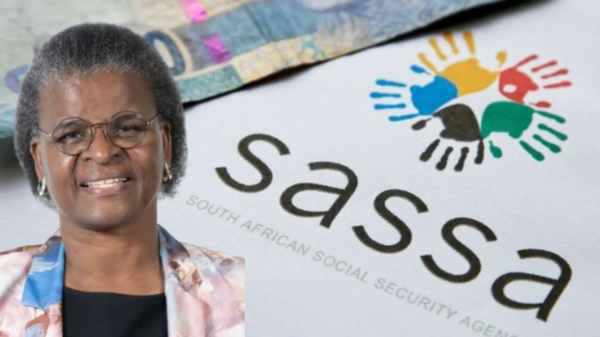D-Day for the decision on whether South Africa will be greylisted by the Financial Action Task Force (FATF) is fast approaching, and Government has taken steps to avoid this economically adverse status.
But is it doing enough?
In this blog, we take a look at three of the steps authorities have taken to steer clear of the grey list, which would be a serious blow to the country’s reputation and involve heavy scrutiny of all its financial comings and goings.
First, a brief background.
South Africa’s AML standing: A series of unfortunate events?
The predicament SA finds itself in today started three years ago, in 2019, when FATF and Southern Africa Anti-Money Laundering Group visited South Africa to assess its anti-money laundering (AML) regime, and found it sorely lacking.
At the time, South Africa was under a thick cloud of controversy and criticism bred by the State Capture saga, which saw extreme levels of corruption and kleptocracy in the country.
The evaluation report that followed laid out in detail the effectiveness of South Africa’s AML/CFT (Countering the Financing of Terrorism) processes, and the degree to which the country complied with FATF recommendations.
The report was adopted at FATF’s June 2021 Plenary, which revealed a dire state of affairs. South Africa’s effectiveness level was ranked as ‘moderate to low’, with the country only being compliant with 3 of the FATF’s 40 recommendations.
At the next FATF Plenary, in October 2021 it was decided South Africa would be placed under a one-year observation period, during which remedial steps would have to be taken to address the shortcomings. If it is ascertained that South Africa has failed to do so by February 2023, FATF will add South Africa to its grey list.
And so, South Africa’s lawmakers and leaders scurry to meet the FATF’s approval.
Three steps: The road to reparation
Here are three steps the South African authorities have taken in a bid to ward off a FATF greylisting:
1. Treasury’s legislation edits
South Africa’s Treasury has introduced changes to legislation, including:
- Amendments to the Financial Intelligence Centre Act (FICA), that include an increase in the list of accountable institutions required to comply with AML/CFT laws. This includes Virtual Asset Service Providers and dealers in high-value goods, among others.
- Changes to the Trust Property Control Act and Non-Profit Organisations Act, which compels trusts and non-profit organisations to comply with AML/CFT law.
- Revisions to the Companies Act to allow for transparency and reporting on beneficial ownership.
2. The Jooste raids
In October this year, the South African Reserve Bank (Sarb) finally made a move in what has been dubbed the biggest case of corporate fraud in South Africa’s history: the Steinhoff scandal.
The central bank attached over R1.4 billion in assets linked to former Steinhoff CEO Markus Jooste, five years after it told Parliament it was investigating whether Steinhoff had violated the country’s exchange control laws.
It has been said that the move was spurred by Government’s frantic endeavours to avoid the FATF grey list. Whether or not this is the case is debatable, but it is hoped that the task force will regard it as a notable action with regard to the country’s AML/CFT efforts.
3. The Protection of Constitutional Democracy against Terrorist and Related Activities Amendment Bill
Another legislation move that has raised eyebrows, but the Government ostensibly feels will help South Africa escape the list, is the Protection of Constitutional Democracy against Terrorist and Related Activities Amendment Bill – also known as the ‘Anti-Terrorism Bill’. In October, Portfolio Committee on Police chair Tina Joemat-Pettersson said one of the primary reasons behind the anti-terrorism bill was the greylisting threat.
Meanwhile, local businesses wait with bated breath to see whether they can breathe a sigh of relief, or will have to buckle up for a rough economic ride.
And, even though a recent research report commissioned by Business Leadership SA found that there is an 85% probability that South Africa will land on the grey list, hope springs eternal for the country’s powers that be.
REFERENCES
- Datanamix Blog – AML Sanctions Screening in the spotlight
- International Compliance Association – South Africa edges towards FATF grey list
- Anchor Capital – What is the greylisting? The risks and implications for the SA financial services sector
- The Guardian – ‘State Capture’: The corruption investigation that has shaken South Africa
- statecapture.org.za – Hearings
- FATF – Outcomes FATF Plenary, 20-25 June 2021
- FATF – South Africa’s measures to combat money laundering and terrorist financing
- Moneyweb – Hasty law amendments to avoid SA greylisting face serious pushback
- Moonstone – Did greylisting threat hasten Sarb to act against Markus Jooste?
- News24 – Godongwana: Law changes ‘critical’ to prevent greylisting
- Moneyweb – Hasty law amendments to avoid greylisting face serious pushback
- News24 – 85% chance of greylisting – South Africans must prepare for greater scrutiny, report finds


































